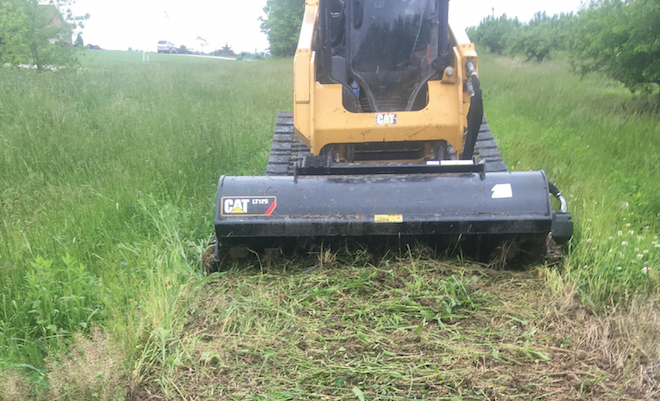

Aug 17, 2020Grower’s Postcard: Irrigation, no-till organic production bring out the best
Dear reader,
I hope that this postcard finds you doing well. I can only imagine that you are scrambling now in the heat of the summer, and hopefully your veggies are coming on fast and you are pulling lots of tasty things out of the field.
Here is Wisconsin, we have had generally well-timed rains. Though I have friends in Illinois who seem to be missing every rain that comes – each storm just splits around them. And as a result they are spending a good deal of time running irrigation. But their set-up is barely enough to meet the need, and the result is a lot of late nights and early mornings moving traveling guns and setting up pipe. Their well does not have excess capacity and so the only option is to pump out of the creek. They decided to invest a lot of money in a diesel pump, a new traveling gun and running pipe under a road so that they can have the irrigation capacity they need.
They tested the creek water and it is OK, but given that they sell fresh market, it is tough knowing that the cleanliness of the water can change with whatever is flowing down from upstream. They figure they will be judicious on how they irrigate with their well water and surface water, so that crops close to harvest or leafy greens only get the well water – which is cleaner and keeps consistent water quality.
Investing this much money in the middle of the season was not an easy decision to make, especially with farmers’ market sales way down due to COVID-19, but they figured it would be valuable to finally get a decent night’s sleep without having to wake up and irrigate, and to assure that each crop can get a deep watering before the gun must be moved. And since they want to be farming far into the future, having excess irrigation capacity will serve them well. Let’s just hope they see the sales to help pay off these irrigation purchases.
Another friend has really gotten on board with organic no-till production as a way to improve their soil. This grower has a 900-member CSA plus wholesale and grows on 30 acres. They have been adding compost to their soil for 30 years, but with such intensive cropping and a very nice stone-burying bed-shaper that pulverizes their soil into a perfect seedbed, they were not seeing enough improvements in soil health.
I was very impressed that they wanted to try organic no-till on their scale; everything I read about it is about people using hand-tools or walk-behind tractors on a much smaller scale. It is not yet clear to me how to implement organic no-till on a tractor scale. This grower jumped right in, covering 3 acres with an inch or two of compost and planting into it – but the best-laid plans of mice and men ….
With our cool spring there was slow emergence of direct-seeded crops and slow rooting of transplants. Weeds caught up fast and there were few mechanical weeding options with all the compost and residue, and handweeding was not an option. So that 3 acres has been lost to the weeds. I don’t know how the grower will react – but based on their tenacity and creativity – I imagine they will learn from the experience and try something new. Looks like they ran into the same problem lots of people do with organic no-till, but I commend them for trying.
I was walking the fields with another friend, and they had shoulder-high flowering sweet pea vines clinging to a trellis waving boldly in the air – the finest peas I ever saw. In my neck of the woods peas are notorious for poor emergence resulting in a poor stand. This grower has bitten the bullet and transplanted peas in peat pots! While the time involved was stunning, I couldn’t argue with the results. It reminded me to keep an open mind and to keep trying new things.
I have made just a little time to sit in a hammock and look up at the clouds passing by – I am still waiting to see one that looks like me. Hoping you’ll find some time to take a walk with your special person and wishing you a bountiful harvest, Sam.
— Sam Oschwald Tilton, VGN columnist














